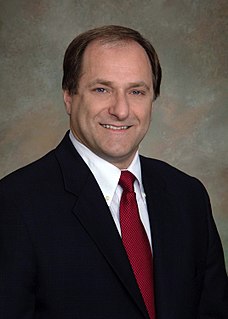A Quote by Fyodor Dostoevsky
Let us not forget that the reasons for human actions are usually incalculably more complex and diverse than we tend to explain them later, and are seldom clearly manifest.
Related Quotes
Every day God patiently bears with us, and every day we are tempted to become impatient with our friends, neighbors, and loved ones. And our faults and failures before God are so much more serious than the petty actions of others that tend to irritate us! God calls us to graciously bear with the weaknesses of others, tolerating them and forgiving them even as He has forgiven us.
A diverse ecosystem will also be resilient, because it contains many species with overlapping ecological functions that can partially replace one another. When a particular species is destroyed by a severe disturbance so that a link in the network is broken, a diverse community will be able to survive and reorganize itself... In other words, the more complex the network is, the more complex its pattern of interconnections, the more resilient it will be.
For complex reasons, our culture allows "economy" to mean only "money economy." It equates success and even goodness with monetary profit because it lacks any other standard of measurement. I am no economist, but I venture to suggest that one of the laws of such an economy is that a farmer is worth more dead than alive. A second law is that anything diseased is more profitable than anything that is healthy. What is wrong with us contributes more to the "gross national product" than what is right with us.
But I do say that educated and scholarly men, if they’re brilliant and creative to begin with—which, unfortunately, is rarely the case—tend to leave infinitely more valuable records behind them than men do who are merely brilliant and creative. They tend to express themselves more clearly, and they usually have a passion for following their thoughts through to the end.
In actions of enthusiasm, this drawback appears: but in those lower activities, which have no higher aim than to make us more comfortable and more cowardly, in actions of cunning, actions that steal and lie, actions that divorce the speculative from the practical faculty, and put a ban on reason and sentiment, there is nothing else but drawback and negation.





































